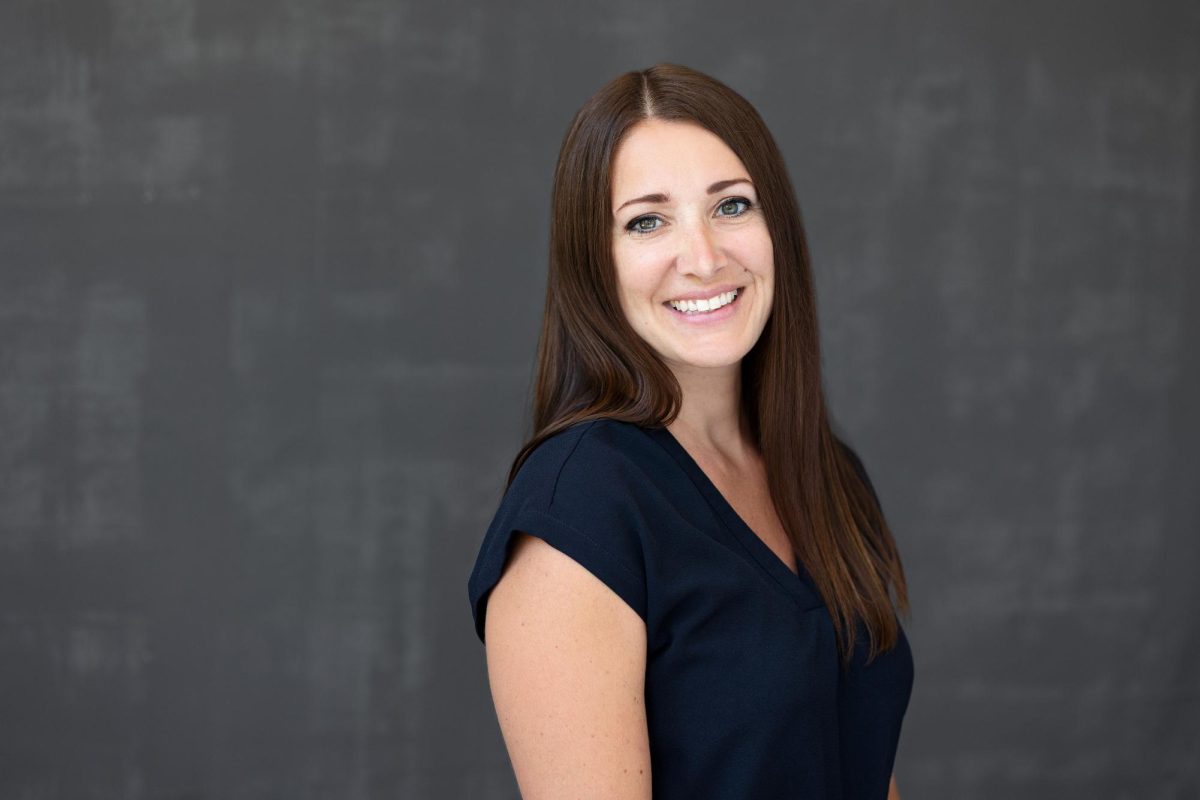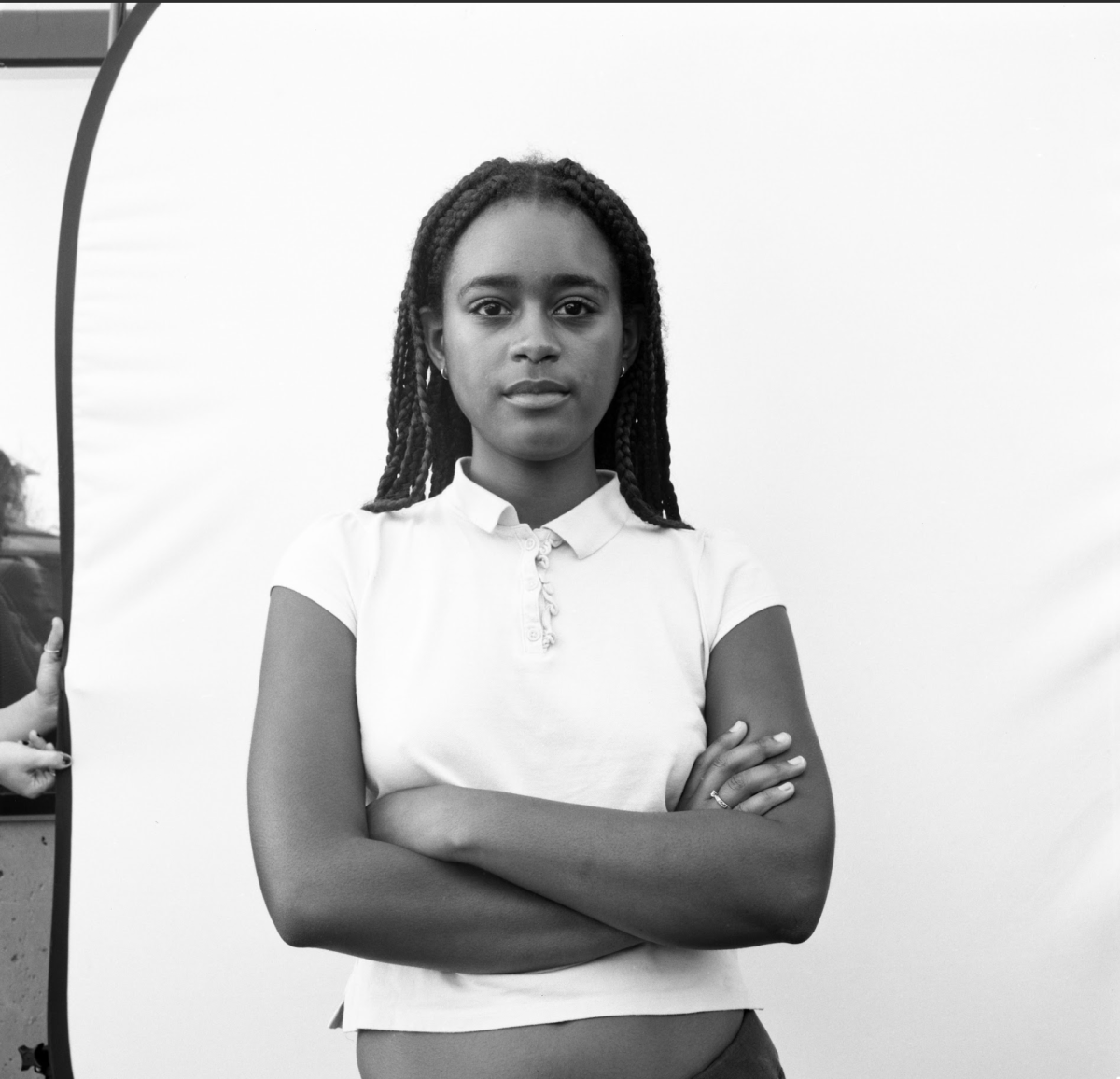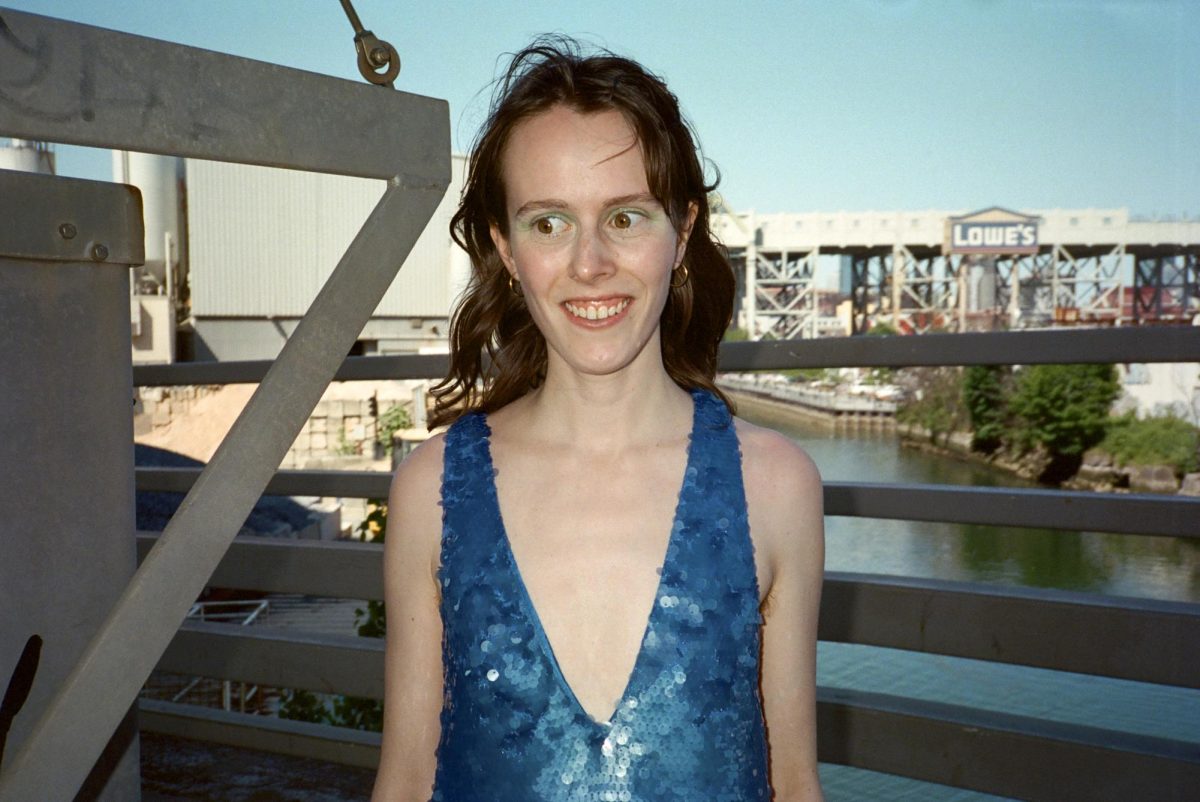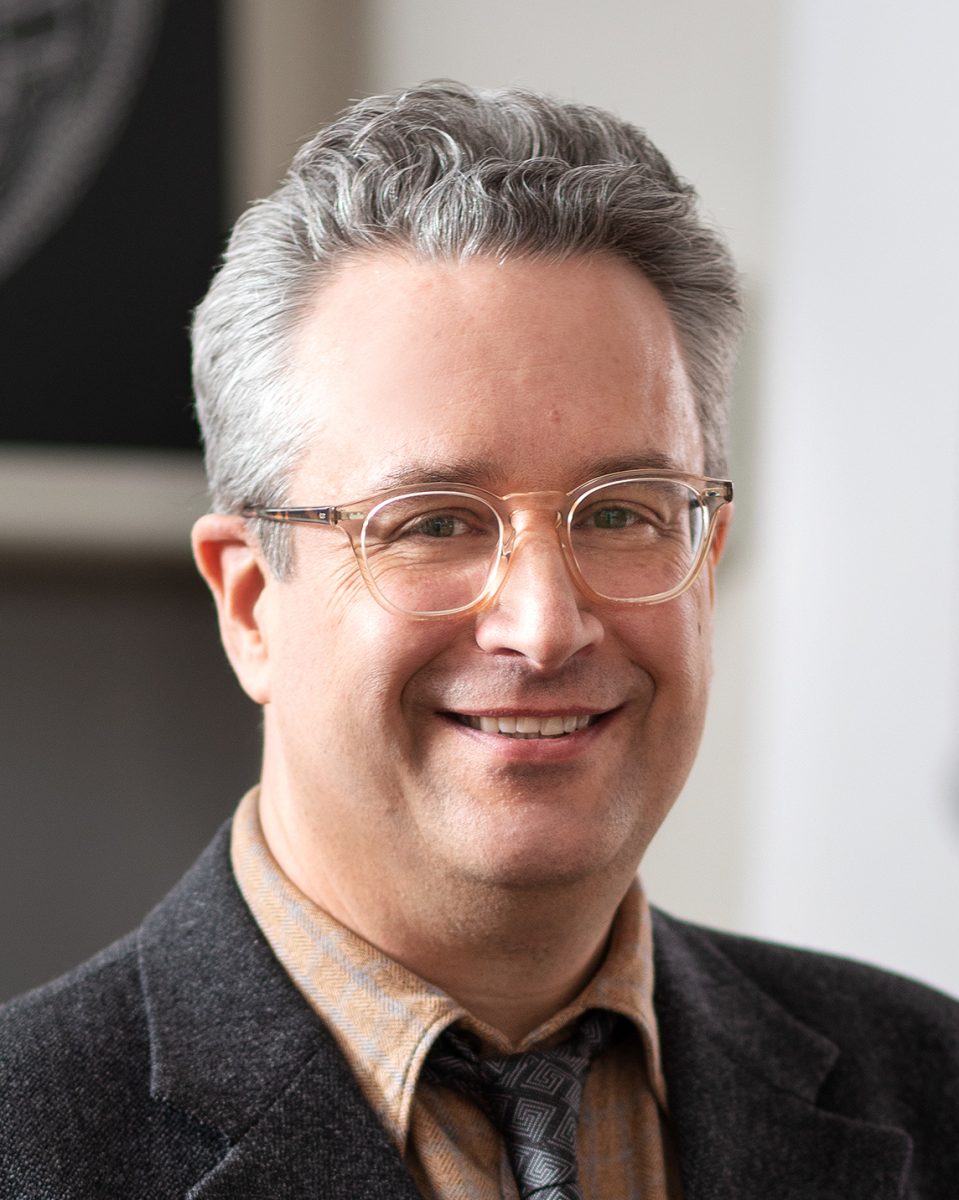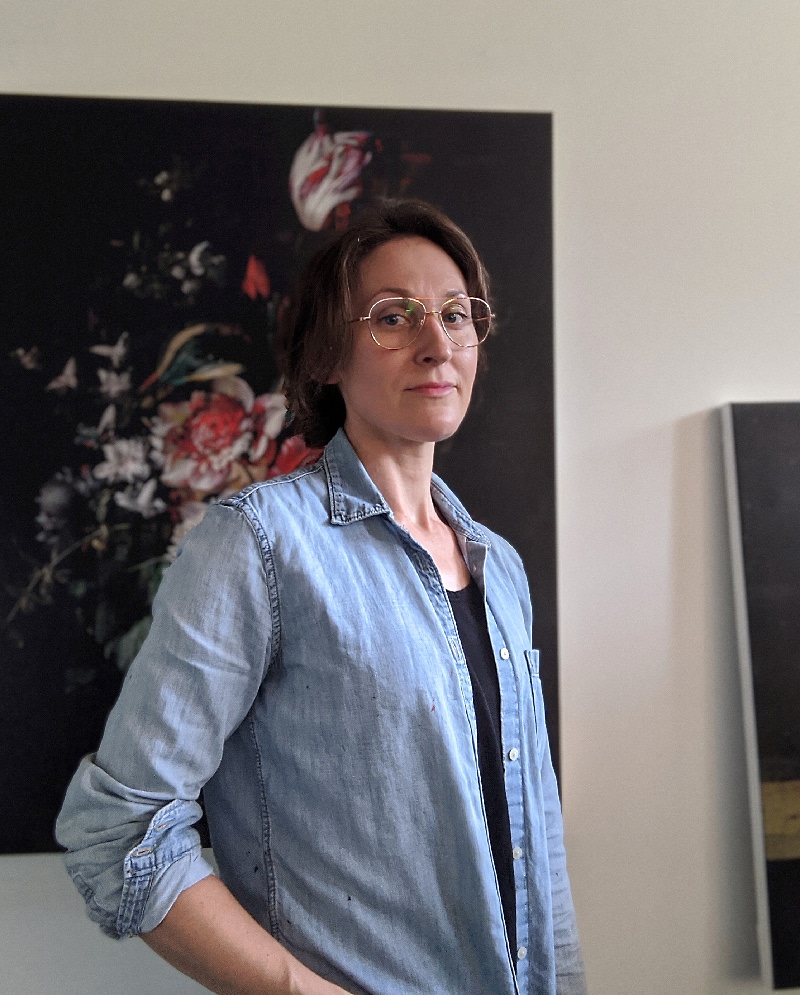Anjanette Hall is an assistant professor of Theater who has performed in various productions in Northeast Ohio. Her most recent role was as adult Addie in the second half of Make Believe, a play by Tony nominee Bess Wohl about how the ghosts of childhood can haunt us as adults. Make Believe was selected as an Outstanding New Off-Broadway Play in the 2019 Outer Critics Circle Awards and listed in Jesse Greene’s top 10 plays of 2019 for The New York Times.
This interview has been edited for length and clarity.
This month you played the role of adult Addie at Dobama Theatre in the regional premiere of Make Believe. What was this experience like?
The writing was fantastic. It’s really layered. It’s really nuanced. It rolls off the tongue. With contemporary theater, it’s pretty clear when the writing is solid because it’s easy, if that makes sense. I feel like Wohl took some risks with the play. The first half is about the kids, and it’s acted by kids. It’s unique in that we’re not watching something meant for children; we’re watching an adult play with adult themes. As you move into the second half of the play, it’s the children as adults and what happened to them. Usually what you’re doing as an actor is you’re building a character’s history based on the text, but you don’t get to see it. In Make Believe, you get to see it at rehearsal every day — the mannerisms of who you are going to become or the circumstances of what happened to these kids.
We split the rehearsal process up for various reasons, one of those reasons being the content of the play. The trauma of childhood comes to light in the second half. We were very protective of the kids because they were 10, 11, and 12 years old. The director, Nathan Motta, worked closely with their parents, giving them lots of conversations, time, and resources to be able to decide for themselves what they wanted to share with their kids about the themes of the play. As they left and the adults began, the kids would talk about what they may have discovered that day in rehearsal. We had this hand thing where we’d go whoosh, and it was a metaphorical way to clean the space from all that was there and start anew. It’s a little ritual to cross the threshold and to step out, because the themes were pretty heavy. It was important that we did that kind of safe work.
Can you describe your process for preparing roles that require conjuring up strong emotions and a character’s past history? How did you prepare for your role in Make Believe, specifically?
That’s what I like to teach my students — that there’s a process to this thing. It does vary depending on the role and the character, but I always go back to circumstance and relationships, no matter the role. For the role of Addie, we’re exploring her childhood and everything in between until this moment, so I did a lot of crafting of her history. I think about where her relationships are now with these siblings and how they’ve changed or grown or been stilted. With Addie in particular, she blocked out a lot of stuff, so it was figuring out those things. I also did a lot of personalization. I myself have three older siblings and a younger sibling, so it’s finding those parallels.
How do you balance teaching theater at Oberlin and being involved in the world of theater and acting yourself? Which takes a priority in your life, if either of them do?
I’ve been lucky enough to be a professional actor and be able to teach it for many years now. I’m also always trying to maintain an acting career. It’s part of me keeping up with my own artistry, and keeping myself alive in it is important. I feel really supported at Oberlin to continue working as an actor, and I’m so grateful for that. I also have a family, and that’s another huge — if not the biggest — part of my life. There’s still times when I’m like, “Anjanette, you should have said no.” You can’t just say yes to everything, you know? I lived so long as a hungry actor who just wanted to do everything, and I wasn’t as good at balancing. I don’t take on more than three projects a year. It has to do with juggling and balancing and figuring out, what can we handle? What can we not? When one thing starts to overtake something else, I check myself. It’s very important that, for example, being in this production doesn’t affect my teaching. It’s going to affect it a little bit. I’m going to be a little more tired and drink a third cup of coffee in the morning and things like that. But if we get into a danger zone with that, I have to really check myself.
How do you see your career progressing as you continue to move forward in terms of acting and teaching?
I’d love to continue to grow as an educator here in particular, because I do feel like this institution is the right fit. In terms of my acting career, I think I’m at an interesting place with it. I’ve been in this area for long enough now that I’ve developed a lot of relationships, and I have the ability to seek out projects and have conversations with people I’d love to work with. That was always a dream of mine as a younger actor. I just wanted to do good work with good people. I spent many years in New York acting in regional theater, but I’ve never felt like I had to be on Broadway or get the lead in a film. More importantly to me is doing good material and well-written work, whether it be film or theater.
What advice do you have for young actors at Oberlin right now?
Some of it’s thinking every day about what kind of actor I want to be — defining that for yourself all the time. It’s going to start to translate into: who do I want to be? What do I want? You start to manifest that, and you start to set goals — real goals for yourself that you start to achieve. Don’t think that your fantastic ideal of a life has to be like anybody else’s. How do you define success for yourself? That requires digging deep inside yourself and finding out what that is, and even allowing it to change. What I wanted out of my career and my life has shifted and changed, but I’ve always tried to keep tabs on it and ask myself, am I happy? If not, then how do I start to move more toward what I want? Sometimes we get stuck in this idea of fame or what a successful actor is. Go a little deeper. What does that mean? What does that fulfill? What is success to you?


